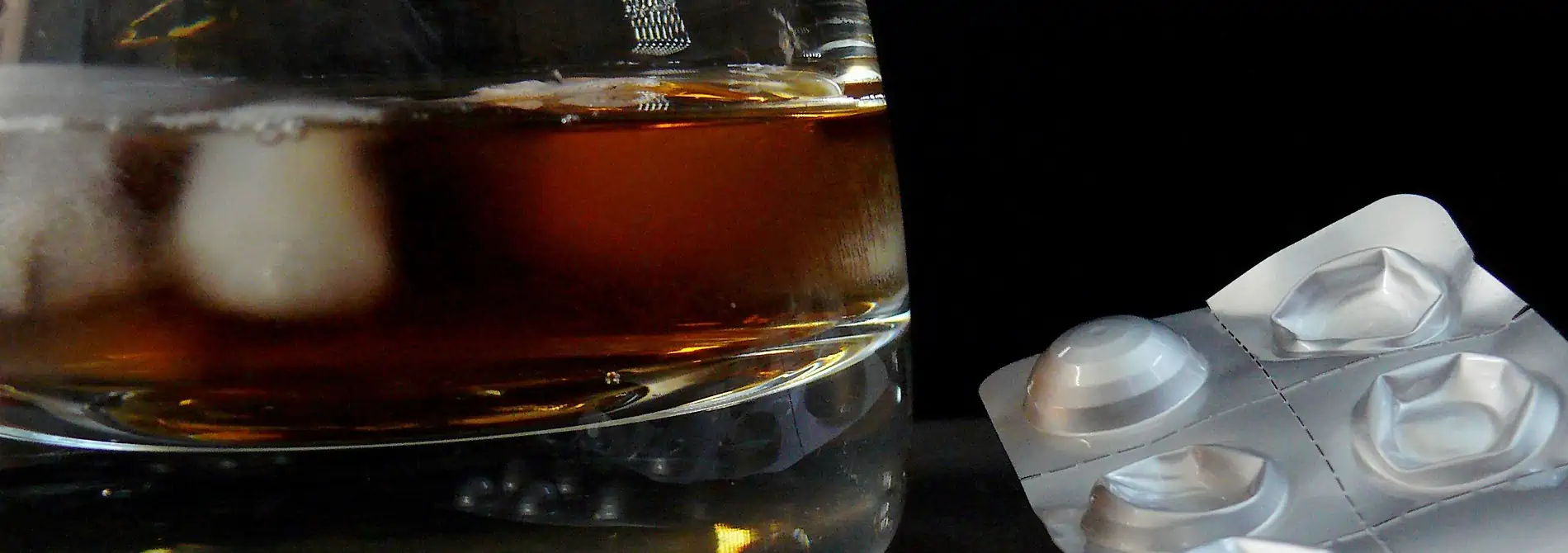If chronic or frequent pain keeps you taking meds for relief, you may want to reevaluate your drinking habits. One big risk comes from the potential outcomes of mixing alcohol with opioids. Today, we’ll talk about what makes this combination so dangerous and introduce some safer alternatives to opioids.
Can you take painkillers and still drink? The answer is no. Mixing booze and pills can create medical complications. One of the riskiest drug interactions is using alcohol with opioids. The combination can stop a person’s breathing or heart momentarily—or result in death. On its own, even short-term use of an opioid can become addictive or lead to overdose. People who believe they are at risk of opioid addiction can find safe alternatives for pain relief. They include over-the-counter products as well as physical therapy, exercise and movement, and regular massages.
If you or a loved one need help, call our admissions team today at 561-270-1753.Why is mixing booze and pills so dangerous?
It’s potentially deadly to mix these two substances. That’s the worst-case scenario. It doesn’t take multiple times using them together either. It can happen in one use.
What makes it deadly?
The blend of opioids and alcohol can make breathing very shallow or temporarily stop someone’s breathing altogether. This respiratory risk is what can lead to death. Seniors may be at a higher risk. Even one prescription tablet with a small amount of alcohol can put someone’s life in danger.
A reduced heart rate and lowered blood pressure are side effects of both alcohol and opioid use on their own. Mixing them can lead to stopping the heart, momentarily or permanently. That’s one reason this type of drug interaction gets so much attention these days.
What makes alcohol and opioids so addictive?
Opioid addiction can happen quickly. So, how do people get addicted to opioids? Even though it’s designed as a short-term pain relief, it’s addictive properties can lead to an SUD or overdose. That’s because of the changes it makes to the brain. It stimulates powerful pleasure centers in the brain. This activation makes opioid use very appealing for people to use it in an off-label way.
Alcohol affects the brain in a similar way. Drinking releases chemicals (dopamine and endorphins) and makes the user feel pleasure. It can act as a natural painkiller, too. Frequent alcohol use makes a person desire more to have the same effects of feeling pleasure and lead to alcoholism.
Are opioids ever safe?
Opioids can be used safely when taking them exactly as they were prescribed and monitoring your use of them. For most surgical clients, the period of use is extremely short, a matter of a few days or less. If it’s used to treat acute pain, the safest dose will be the lowest dose possible for the shortest amount of time.
If you find you’re using them more frequently or taking more at one time, your risk of an opioid addiction increases. Even short-term use can become a problem. That’s why it’s important to stay in touch with your doctor or other healthcare provider during the period you’ve been prescribed opioids for pain relief.
What are some alternatives to opioids?
Less-addictive types of medications are one alternative to opioid use. These are especially important for a client with chronic pain who needs a long-term solution. The list of these options includes acetaminophen and ibuprofen, both over-the-counter products.
Medication is not the only alternative. Pain management can come from a variety of therapies, such as physical therapy and occupational therapy. Exercise and movement can be added to a daily routine, too. Regular massages can also provide some relief. It’s important to talk to your doctor or other healthcare provider if you suspect opioid use may be a problem for you.
Headwaters is here to help.
Headwaters specializes in helping people in high-profile positions get sober in a private setting with confidential treatment. Experiencing a dangerous drug interaction shouldn’t be the warning sign to get help. If you’re someone who’s been mixing booze and pills, saving your life and protecting your career is within reach.
We understand the desire to cope with high-pressure environments and work demands has been a factor in the drug and alcohol use of our clients. We help identify other factors that may be contributing to substance use, too. These factors may be related to mental health. Our goal is to help each person understand what they need specifically to learn how to stay sober within a program and beyond.
Headwaters is a well-known care provider offering a range of treatment programs targeting the recovery from substance use, mental health issues, and beyond. Our primary mission is to provide a clear path to a life of healing and restoration. We offer renowned clinical care for addiction and have the compassion and professional expertise to guide you toward lasting sobriety. For information on our programs, call us today: 561-270-1753.





